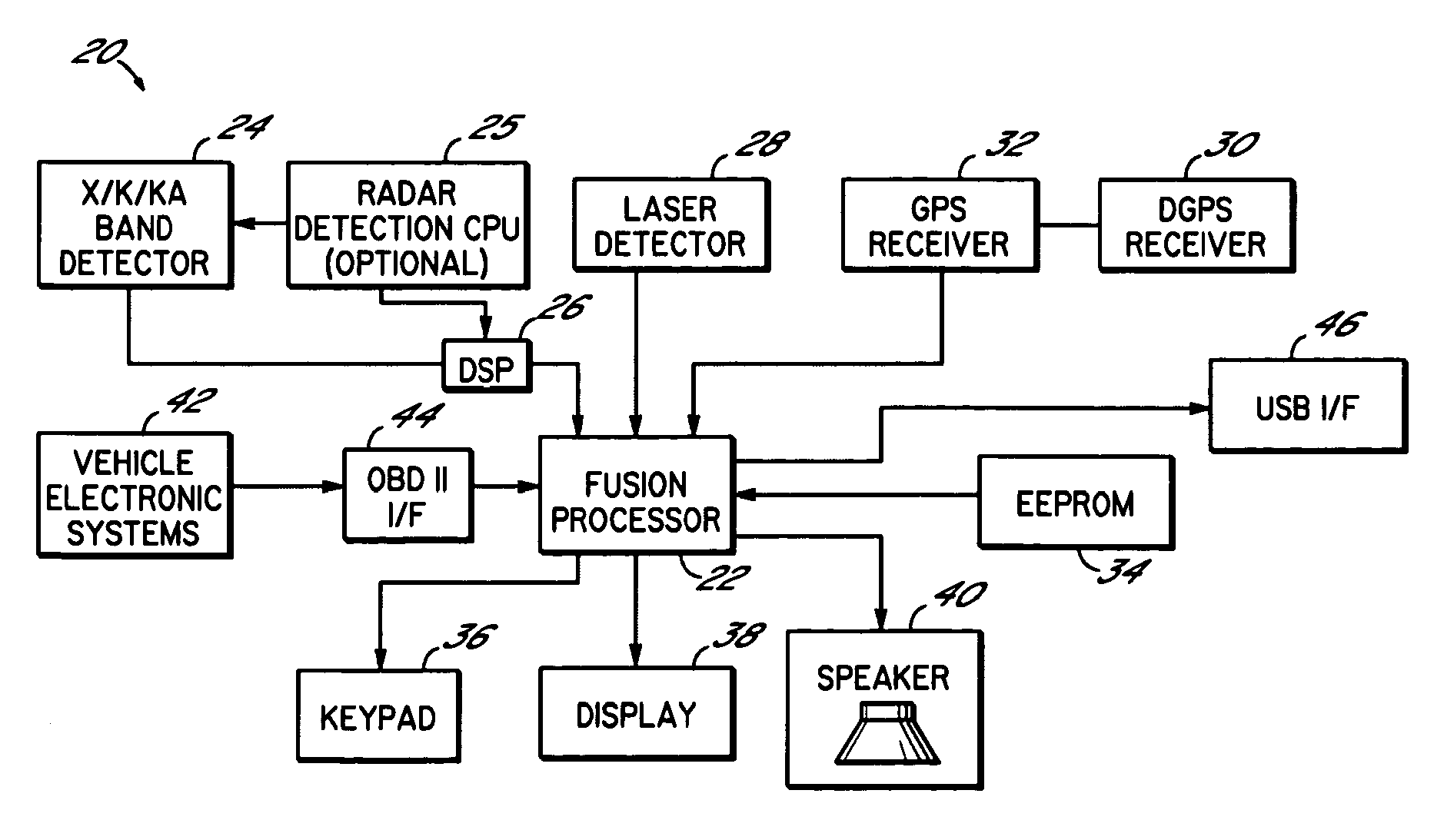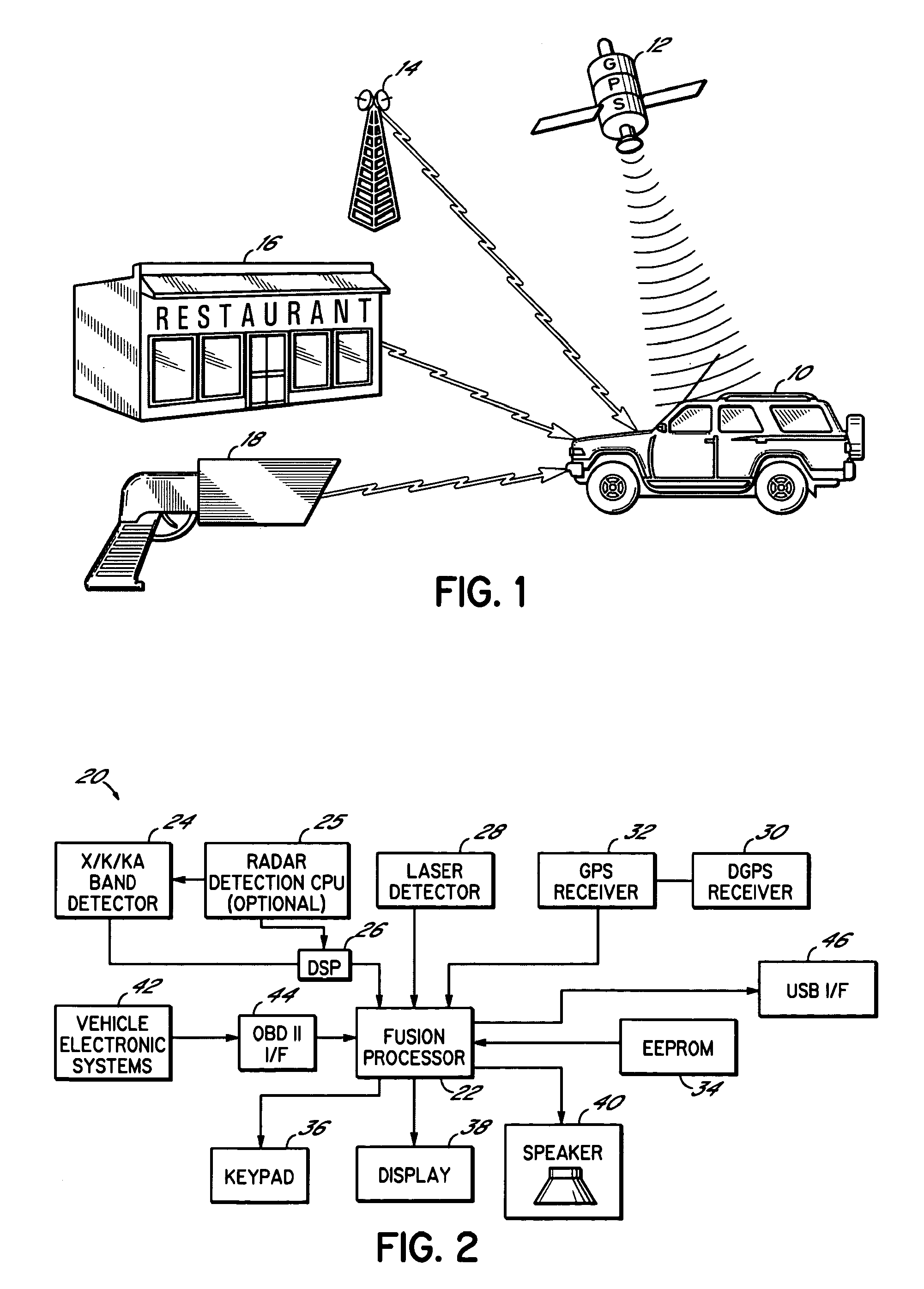Radar detector with position and velocity sensitive functions
a technology of position and velocity, applied in the field of radar detectors, can solve the problems that many stationary sources cannot, as yet, be effectively filtered economically, and achieve the effects of improving the handling of such detections, effectively filtered economically, and improving the handling of unrelated sources
- Summary
- Abstract
- Description
- Claims
- Application Information
AI Technical Summary
Benefits of technology
Problems solved by technology
Method used
Image
Examples
Embodiment Construction
[0040]To provide background for the present invention, a summary of GPS (Global Positioning System) technology will now be provided. GPS is a mature technology that provides a method for a GPS receiver to determine its relative location and velocity at any time. The (GPS) system is a worldwide constellation of 24 satellites and their ground stations. GPS receivers on earth use ‘line of sight’ information from these satellites as reference points to calculate positions accurate to a matter of meters. Advanced forms of GPS actually enable measurements to within a centimeter. The Global Positioning System consists of three segments: a space segment of 24 orbiting satellites, a control segment that includes a control center and access to overseas command stations, and a user segment, consisting of GPS receivers and associated equipment. Over time GPS receivers have been miniaturized to just a few integrated circuits and have become very economical.
[0041]An unfortunate side effect of the...
PUM
 Login to View More
Login to View More Abstract
Description
Claims
Application Information
 Login to View More
Login to View More - R&D
- Intellectual Property
- Life Sciences
- Materials
- Tech Scout
- Unparalleled Data Quality
- Higher Quality Content
- 60% Fewer Hallucinations
Browse by: Latest US Patents, China's latest patents, Technical Efficacy Thesaurus, Application Domain, Technology Topic, Popular Technical Reports.
© 2025 PatSnap. All rights reserved.Legal|Privacy policy|Modern Slavery Act Transparency Statement|Sitemap|About US| Contact US: help@patsnap.com



